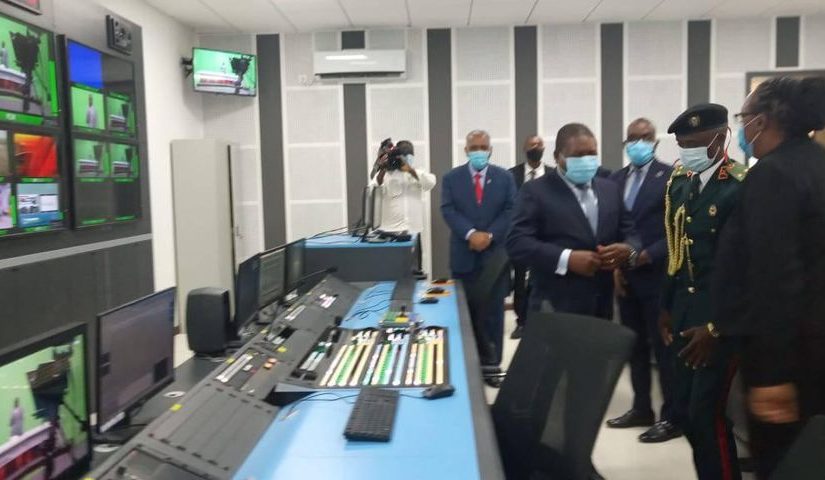Mozambique: Alberto Nkutumula becomes Constitutional Council judge
Mozambique: Nyusi lanches digital TV in Beira, Sofala – Watch

Photo courtesy: Gilberto Gomes / Facebook
Mozambican President Filipe Nyusi on Thursday launched a digital television signal in the central city of Beira, and inaugurated a new Sofala provincial television centre, for the publicly owned television station, TVM.
This centre will be the regional hub for digital transmission throughout the central provinces. Digitalisation is intended to improve productivity and competitiveness, and expand the network of community radios and televisions in the rural areas.
The launch of the digital signal does not mean the immediate blackout of the analog system. Instead, both analog and digital transmissions will continue, as the county moves towards definitely phasing out the analog signal.
“We are working to see if, within a year, we can assess whether or not conditions exist to turn off the analog signal”, said Nyusi. “We’ve entered the countdown towards declaring an end to the transmission of television in an analog system”.
The launch of the digital signal imposes new challenges, the President added, particularly in terms of improving the content of television, above all by producing more Mozambican television programmes.
“The professionals of the area will have to retrain to understand the demands of the new standard of television transmission”, he continued. “We invite all Mozambican TV operators and professionals to embrace these challenges and turn them into opportunities for more creativity, productivity and business”.
Nyusi challenged Mozambican and foreign business people to take advantage of the “digital dividend” arising from the switch from analog to digital television. He urged the country’s parliament to bring laws and regulations into line with the new reality.
Nyusi believed that one of the major gains of digitalisation will be the expansion of access to television to more Mozambicans. This, he said, would help expand the debate about the development of the country. It would strengthen national unity and identity, and consolidate democracy.
Digital migration was made possible by funding of about 156 million US dollars made available by the Chinese government.
The economic and commercial counsellor of the Chinese embassy in Maputo, Liu Xiaoguang, told the ceremony that his government decided to embrace the project because it recognised its importance in improving the lives of Mozambicans, through increased television coverage across the country.
“This project is an essential job of the Mozambican government to benefit the life of the people”, he said. “Both governments, the Chinese and the Mozambican, have the same vision of putting the people in first place, seeking to improve their living standards. Communication and infrastructures are some of the most important areas in the cooperation between our two countries”.
The preparations for full digitalisation included assembling a digital television network in 60 provincial capitals or districts, building a TVM Television Production Centre in Maputo, and equipping the TVM studios in nine provincial capitals.













Leave a Reply
Be the First to Comment!
You must be logged in to post a comment.
You must be logged in to post a comment.